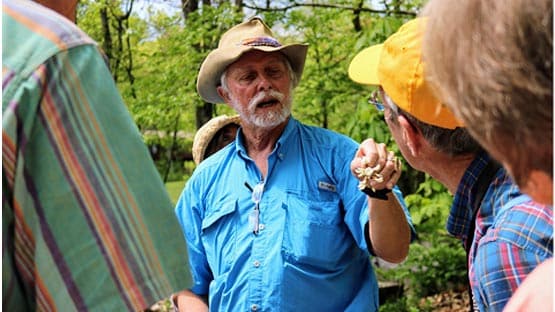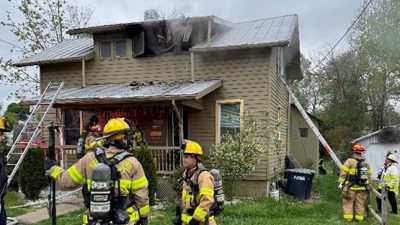
The Community Development Investment Tax Credit would help unlock more equity and long-term financial capital for community development financial institutions (CDFIs).
CDFIs often serve as a backbone for underserved communities including small and disadvantaged businesses, which usually have fewer banking relationships and less credit options.
The legislation, reintroduced by U.S. Sens. Mark R. Warner of Virginia, Roger Wicker of Mississippi, Chris Van Hollen of Maryland, Cindy Hyde-Smith of Mississippi, Gary Peters of Michigan and Jerry Moran of Kansas, would create a new tax credit to promote private investment in community lenders. Lasting economic prosperity in low-income, minority and rural communities would be possible.
“As someone who worked in the business world long before I ever joined politics, I know well that talent and ambition are not confined by income bracket or zip code. Unfortunately, access to start-up capital often is. CDFIs do the invaluable work of bridging the gap and reaching small businesses in our most vulnerable communities, and we have seen historic investments on this front over the past few years,” Warner said. “Despite this progress, CDFIs remain in need of additional equity and capital to continue serving their communities. This legislation will create a new tax credit, helping spur important private-sector investments and allowing these community lenders to grow.”
According to Wicker, America was built by small business, “but many in low-income areas have trouble accessing the financing they need to launch and grow their businesses. CDFI investments play a pivotal role in bridging these gaps. The proposed tax credit in this legislation would help address the challenges faced by small business owners and provide an alternative to predatory loans.”
The bill would help direct support to lenders that focus on underserved communities by creating a CDFI Tax Credit for private sector investors that make equity, equity-equivalent investments or long-term patient capital available to CDFIs. CDFIs of all types would benefit, including banks, credit unions, venture capital CDFIs and loan funds, while providing institutions with the maximum flexibility and financial support they need to increase wealth in low- and moderate-income communities.
During the COVID-19 pandemic, amid jobs and loss of economic opportunity, Warner teamed up with then-Sen. Kamala Harris of California, Sen. Cory Booker of New Jersey and a bipartisan group of colleagues to introduce the Jobs and Neighborhood Investment Act. In 2022, Warner and Sen. Mike Crapo of Indiana launched the Senate Community Development Finance Caucus (CDFC), a bipartisan caucus dedicated to supporting the missions of CDFIs and MDIs by scaling their ability to lend in underserved communities.
“We thank Senator Warner, Senator Wicker and the other bipartisan co-sponsors of the CDFI Tax Bill, which we strongly support,” said Rob Nichols, President and CEO, American Bankers Association. “ABA is proud to represent a number of CDFIs across the country and this legislation would expand investment in these critically important financial institutions, allowing them to have an even bigger impact in the communities they serve.”
Opportunity Finance Network President and CEO Harold Pettigrew said his company applauds Warner and Wicker for their leadership in supporting CDFIs.
“The Community Development Investment Tax Credit Act will help drive more private capital to CDFIs offering affordable, responsible financing to low-wealth urban, rural, and Native communities across the country. We look forward to continuing to work with Senators Warner and Wicker to expand the tools available to CDFIs to finance economic justice and opportunity across the country,” Pettigrew said.
The legislation will increase “the availability of critically-needed long-term capital that will expand CDFIs’ capacity to develop and deploy affordable, responsible loans designed to meet the needs of the communities they serve. This expanded private investment will help CDFI intermediaries, like Inclusiv, support the growth of high-impact CDFI credit unions, allowing them to expand their lending to advance affordable homeownership, grow micro and small businesses, ensure low- and moderate-income homeowners can access energy efficiency and climate resilience home improvements, and more. We are grateful for Senator Warner’s deep commitment to the CDFI movement’s growth and impact,” said Inclusiv President and EO Cathie Mahon.
Community Development Bankers Assoc. CEO Jeannine Jacokes said the legislation is a smart and strategic tool.
“The credit uses a very small amount of public resources to leverage a multiple of private dollars and generate enormous community impact,” Jacokes said.
Kerwin Tesdell, president of Community Development Venture Capital Alliance, said the bill is a “powerful tool for community development venture capital funds to raise private investment capital to help us reach scale, bringing good jobs and business development to low-income communities across that nation. The legislation also includes important fixes to the definition of CDFI that will correct technical issues that have long caused community development venture capital funds to be underrepresented among certified CDFIs.”










